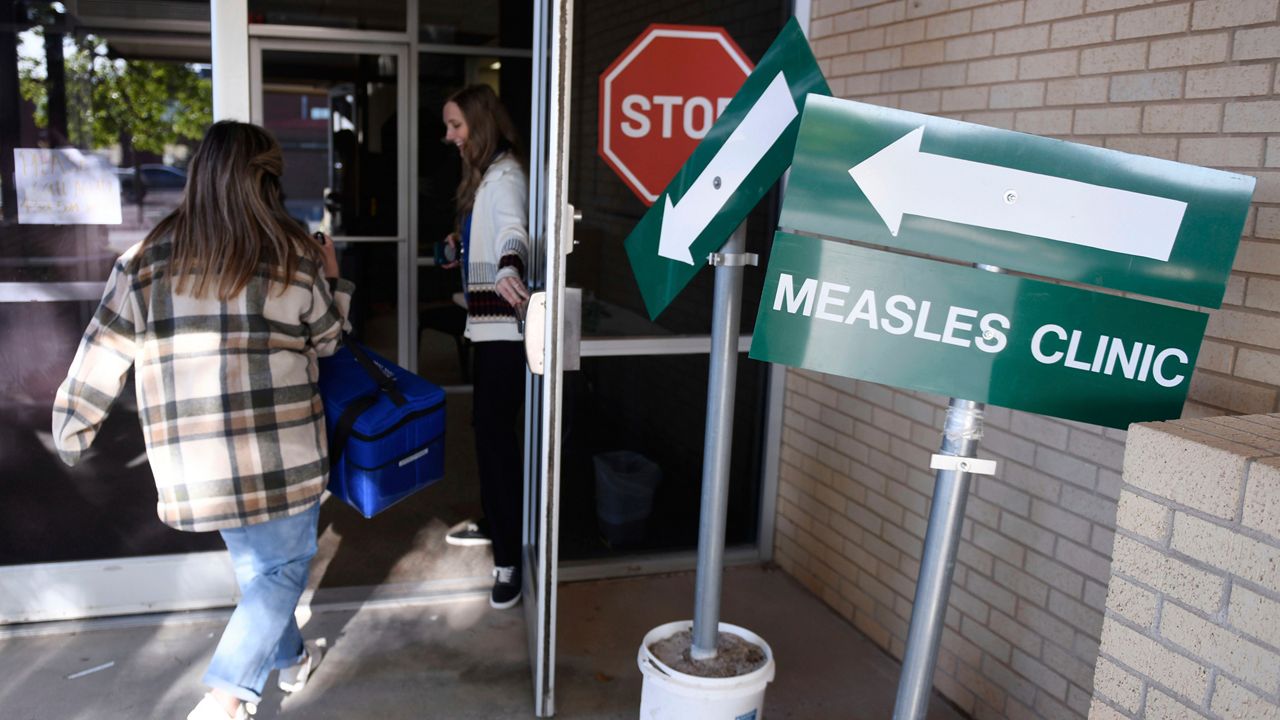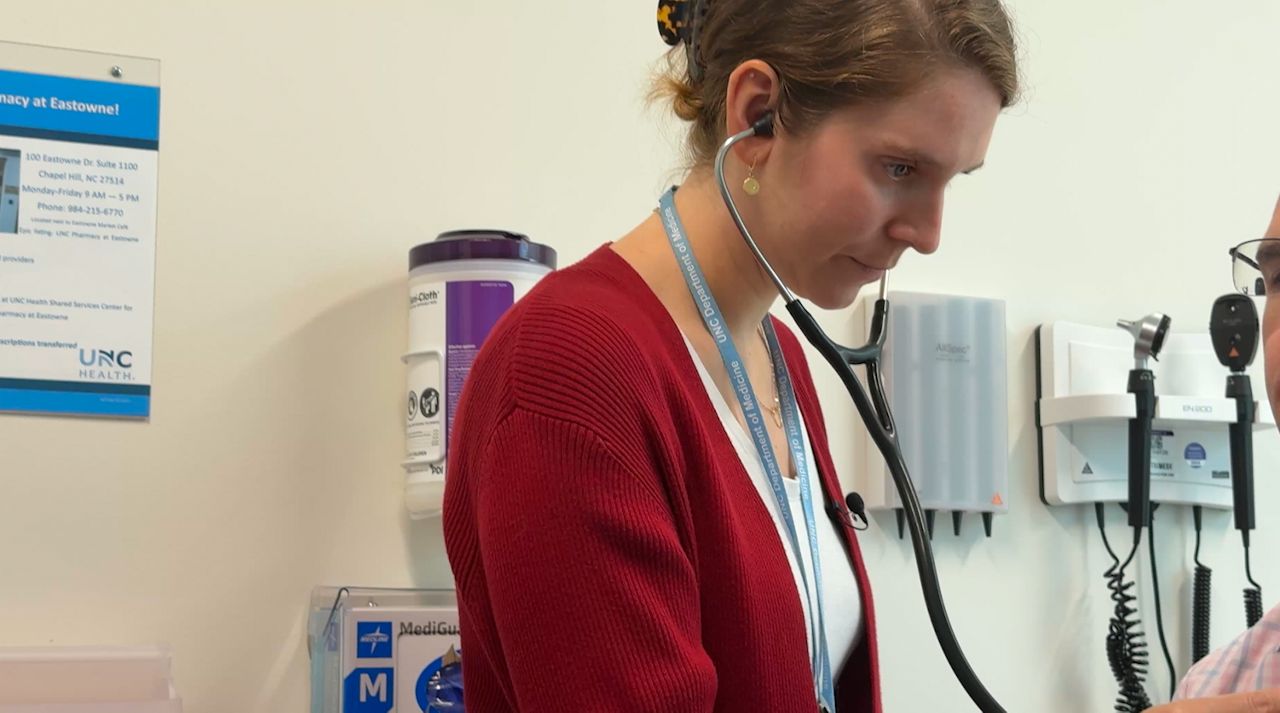The access and use of abortion clinics look differently in the last half of 2023 than in the first half.
A new law redefining abortion care in North Carolina took effect July 1. Since then, the legal timeframe for how late into a pregnancy an abortion is allowed has changed from 20 weeks to 12 weeks. Cases of rape and incest are allowed up to 20 weeks.
Spectrum News 1 interviewed multiple health care workers who provide abortion services in the Triangle. Nurses, doctors in obstetrics and gynecology, and general staff members said they already see the impacts of changing the law.
“Especially when the laws are constantly changing, it feels like the meetings and the frequency of our communication has definitely amped up,” Amber Gavin said.
Gavin is the Vice President of Advocacy and Operations for A Woman’s Choice, a satellite of clinics in and outside North Carolina. Her home work base is predominately in eastern and central North Carolina.
“Every day is different and unique. Sometimes I feel like I should have gone to law school, so I could better understand all of the laws and really help us be more in compliance,” Gavin said. “Every day is different and unique. Sometimes I feel like I should have gone to law school, so I could better understand all of the laws and really help us be more in compliance,” Gavin said.
Rule following is as front and center for clinical workflow, now more than ever. Exceptions for problematic pregnancies are spelled out to a fair degree in the new “Care for Women, Children, and Families Act” legalized this summer, but a qualified physician must decide whether a medical emergency exists or not.
The enacted bill states a woman is allowed the opportunity to pursue abortion services, “After the 12th week and through the 20th week of a woman's pregnancy” if the pregnancy is a result of rape or incest. There is also more time to schedule an abortion if during the first 24 weeks of pregnancy, a doctor determines the fetus has a life-limiting anomaly.
But what defines a life-limiting anomaly is left to the discretion of the diagnosing doctor, not written in black-and-white language about specific genetic and physical health conditions within the new law. The fear of unknowingly breaking the new law is on Gavin’s mind and the doctors who provide care at their clinics.
“Sometimes putting the physician’s license in jeopardy about whether they can practice medicine at all, yeah, of course, that’s going to deter from wanting to provide care, and it may make them want to go to a friendlier state,” Gavin said.“Sometimes putting the physician’s license in jeopardy about whether they can practice medicine at all, yeah, of course, that’s going to deter from wanting to provide care, and it may make them want to go to a friendlier state,” Gavin said.
In the past, A Woman’s Choice flew in physicians outside of the state to help with overflow, but Gavin said their clinic now has fewer positions in rotation to help with the services offered to patients.
Before the law went into effect, Gavin said there was a one- to two-week wait to get an appointment.
She said their calendar was full of patients in June, ahead of the anticipated change on July 1.
“When folks come into the clinic, we don’t want them to feel like it is super medical in here. We want them to feel like it’s a welcoming, inviting environment,” Gavin said.
Creating a safe space is important to her. It is one of the reasons electronic communication is stopped before it starts inside the clinic.
“(We ask them) to put their personal items, cell phone, (and) all that into a locker,” Gavin said.
She said making patients store their belongings during their appointments eliminates the possibility of sensitive information about patients and the clinic leaking out of the building into the wrong hands.
“(It’s for) safety and security. We don’t want people taking pictures of the layout of the clinic and sharing it, then folks who are bad actors having that information,” she said.
Gavin is a sexual assault survivor. The VP said she tried to talk about her options with her doctor at the time, including inquiring about emergency contraception, but the doctor told her they couldn’t help because even recommending plan B was against their beliefs.
“I remember feeling such shame and anger that a health care professional who I trusted wouldn’t help me access the medical care that I wanted, and what I knew was best for me,” she said.
It’s why she entered the field. The work she does daily is evolving.
Aside from changing the time women have to seek out an abortion, the Care for Women, Children, and Families Act requires a face-to-face counseling appointment at least 72 hours before an abortion. This a modification to the prior law when in-person counseling was a choice, and a patient could instead opt for a pre-procedure consent phone call.
The law also requires more paperwork, a consent form that asks a patient multiple questions, which supporters said makes a potential patient well-informed.
Two weeks before a mostly Republican General Assembly overrode Gov. Roy Cooper’s veto of the proposed bill, GOP Sen. Lisa Barnes spoke about the purpose of the new law at a press conference on May 2.
“These are all common-sense requirements to ensure a woman understands her pregnancy and her options,” Barnes said. “This proposal focuses on the health and safety of women and children. We know that oftentimes women feel like they don’t have options when they are faced with an unplanned pregnancy, but we want them to know that they do have options.”
Walking patients through those options, like adoption, is a new part of Jennifer Hille’s job at A Woman’s Choice.
“I have to read them a script that the state has made up,” Hille said.“I have to read them a script that the state has made up,” Hille said.
Hille is a registered nurse who has worked at the Raleigh-based A Woman’s Choice clinic for seven years. The health professional said she worries the questions have other motives.
“There are statements in here that almost shame the patient,” Hille said. In her eyes, repeatedly mentioning and re-wording any reference to abortion makes patients feel even more vulnerable.
“Am I really sure of what I want to do? And we have to ask them that multiple times. It’’s trying to put doubt into their mind and shame them to make them feel guilty like they are doing something wrong,” Hille said.
A patient must initial beside every line of either the surgical or medical abortion before moving forward with services.
“I just don’t think that’s very compassionate,” Hille said.
However, N.C. Senate President Pro Tem Phil Berger talked at length about how he feels the law benefits families and expecting mothers. He said it’s about being a voice for the voiceless.
“What we were trying to do is move the needle in the direction of protecting unborn life. And we feel that this bill does that,” Berger said on May 16, the day the bill was upheld.
For Gavin, it’s her patients who are top of mind.
“That’s one of the things that’s so important to me,” Gavin said.
She described one example of how patients and their families often express gratitude for the care they provide once their visit is complete.
“As a patient and her mother were leaving … they grabbed our arms and they just say, ‘thank you so much for providing care’ or ‘thank you so much for what you do’. That’s what matters, and that’s what keeps us motivated,” Gavin said.
While clinics deal with this new normal, at least one founder of a pregnancy crisis center said they are receiving more phone calls, asking about the alternatives to abortion, which for the anti-abortion camp, is a major win.








